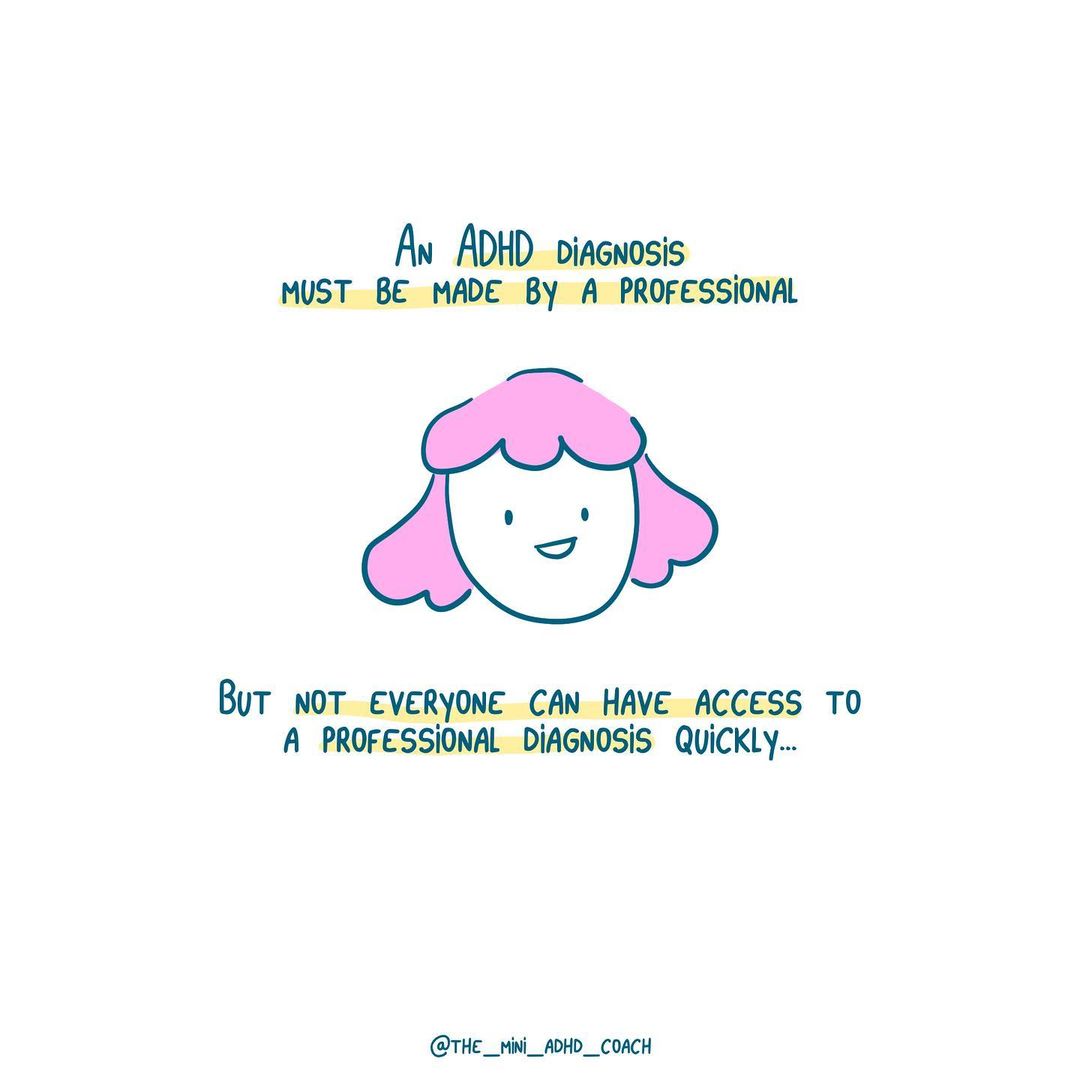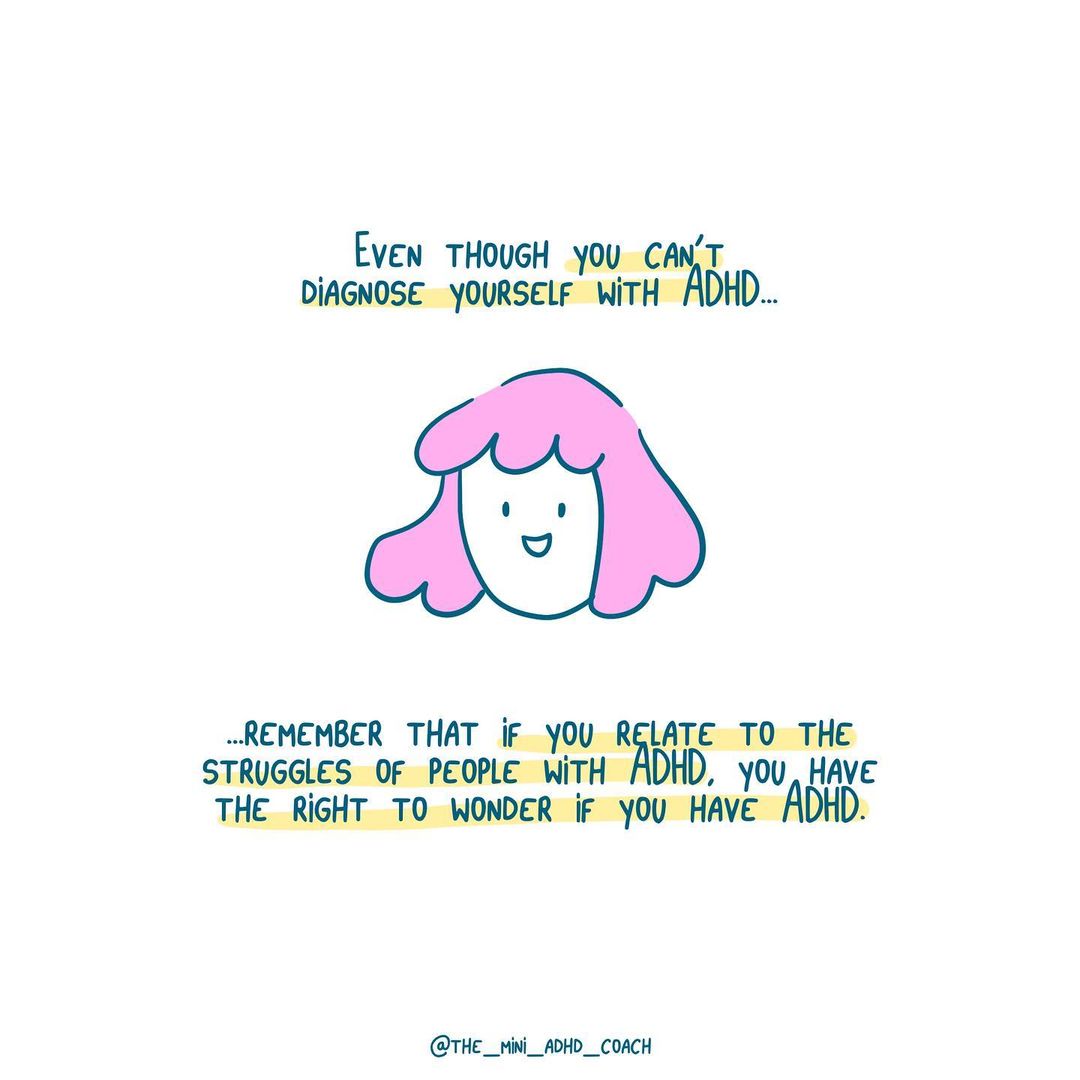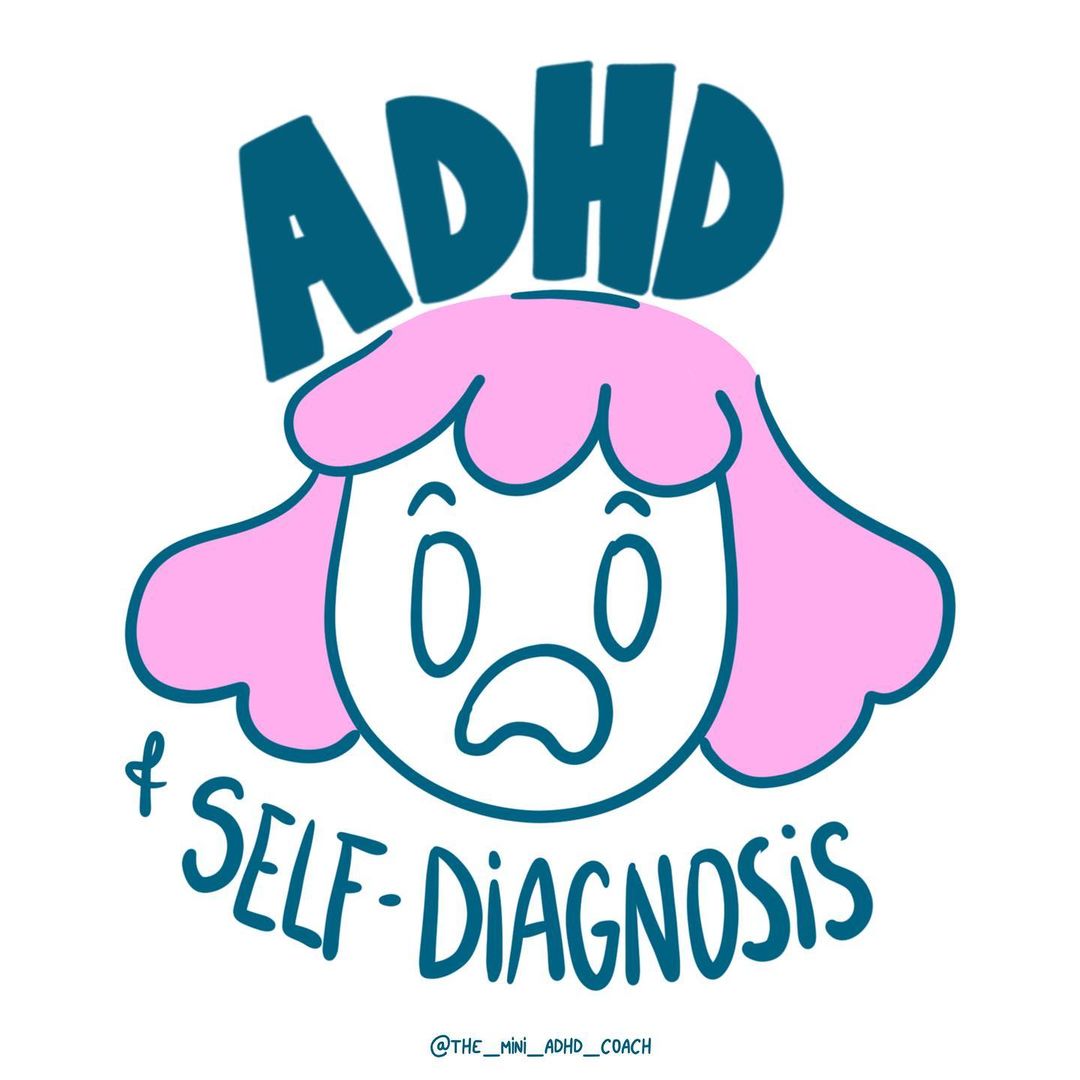Self-Diagnosing ADHD: Wonder if You Have ADHD?
"Mental health matters" is a commonly used sentence online, particularly on social media and forums. However, while mental health is more talked about now, we still sometimes take it for granted. As much as we nurture and take care of our bodies, we also need to know that a healthy mind is likewise essential. ❤️ We might not see it the way we see physical injuries, but we can certainly suffer mentally.
There are plenty of neurodevelopmental disorders that can affect our mental health. Hence, we need to know the different symptoms and signs for each disorder, otherwise we might get confused.

Case in point: mental health disorders, such as bipolar disorder, depression, and anxiety, can be confusing because of their overlapping symptoms. Sure, a mental illness has its own set of symptoms, but when two disorders share many traits and symptoms, it can be hard to determine which one you really have. Perhaps you have both?
ADHD, for example, has symptoms that are similar to other mental health concerns. So, don’t be surprised if at one point, you think “my ADHD probably causes these symptoms” and then later believe that “my symptoms might only resemble ADHD, but maybe I have another mental health problem.”😵

Doing self-diagnosis is like walking in the dark, blindfolded still. It drives you to make careless mistakes that can affect your capability to function well in your daily life. Hence, having an accurate diagnosis and medication (if needed) should be a priority.
You Know The ADHD Symptoms... Now What?
Sometimes, when you deeply relate to the blog posts on our site, you may feel one hundred percent sure that "Yes, that's me." 🙋♀️
You may connect to our "ADHD & Stimming" illustration, but did you know that stimming is also a sign of Autism Spectrum Disorder?There are times when you may feel a little hyperactive and wonder if you have ADHD. But wait, hyperactivity is also a sign of Bipolar Disorder during the manic phase. An adult might experience difficulty concentrating, but it may not be ADHD because an anxiety disorder or depression can also cause it.
Will having trouble focusing, inattention to details, and impulse control be enough to diagnose ADHD? Not quite. This is why self-diagnosing should not be done on its own. It might cost you time and money, and while you can develop coping strategies without a formal diagnosis you might not be able to solve the problem entirely. Remember: ADHD symptoms vary from person to person, and there are a lot of factors to consider. 😉

With doctors, they will want to discuss first what ADHD is, how they identify it, and its difference from Autism Spectrum Disorder, Bipolar Disorder, Depression, and other mental health conditions.
Take our fun online quiz to visualize your ADHD traits and learn more about your brain!
TAKE THE FREE TEST
How to Get An Official ADHD Diagnosis
Attention Deficit Hyperactivity Disorder or ADHD is a condition with significant levels of inattention, hyperactivity, and impulsivity. According to the World Health Organization, these three significant symptoms of ADHD can be present before the age of 12 years old, and it should affect your daily life and activities.
Having an ADHD diagnosis isn't like taking a photo and printing it out. ADHD diagnosis is more like a process, and it varies from clinic to clinic and country to country. 👩⚕️ Different factors can affect your ADHD diagnoses, such as your age, gender, and cultural background. It isn't very easy, and that's why we need to dig deeper into this matter.
My ADHD self-assessment workbook can help you if you wonder if you may have ADHD. Though these evaluation activities or assessments don't guarantee your ADHD diagnosis, they can be helpful when submitted to an ADHD specialist as they can use them for further evaluation. Still, the test through DSM-5 remains to be the gold standard in diagnosing ADHD.

Having ADHD can be very frustrating. So, it's time to visit a doctor if you're sure that you have it. 👌 In certain countries, specific mental health professionals can provide medical advice and diagnosis to people suspecting they have ADHD. They use a diagnostic tool based on your symptoms and experiences to determine if you have ADHD or not.

You may be classified as Predominantly Inattentive if you usually lose focus and cannot pay attention to details. On the other hand, some people are classified as Predominantly Hyperactive-Impulsive ADHD. These people often have difficulty staying still for long periods or have difficulty unwinding because of their increased brain activities. Or you can be diagnosed with a combination of both categories. Having been officially diagnosed with ADHD can help you fully know the answers to the questions in your mind.
The Stereotypes of Attention Deficit Hyperactivity Disorder
If you still don't have time to take an ADHD test and simply continue to diagnose yourself, you might be bound to the stereotypical idea of ADHD. Several misconceptions are presented with ADHD symptoms alone, and you may not fully understand the behavior that you are experiencing.
Several scientific research is held to refute these stereotypes, but some people with ADHD are still stereotyped in places that don't support ADHD that much. 😔 Some people may think that ADHD is only a problem for children, but research studies show it can be prevalent until adulthood. It's not caused by "poor parenting," "overeating sugar," or "watching too much TV."

Another misconception of having ADHD has something to do with heredity. Some adults say that ADHD is usually a result of poor upbringing or the child's desire for attention. According to research studies, ADHD can happen to any child in any family because it is a biological condition that can be passed down through genes. It is not a result of poor behavior or poor wellness routine but can be inherited by the child from their parents.

Most importantly, remember that having untreated ADHD can create a new window for other conditions. 🥺
Now That You Know, How Do You Manage Adult ADHD Symptoms?
After you manage to have an ADHD test for a diagnosis, what else should you do? Some adults with ADHD just let their symptoms happen and work around them. Many people who are at peace with their ADHD can do their tasks well 🙌, like those perceived as "normal" by society. Some people need treatment plans, medication, and therapy sessions with their doctor to understand their symptoms further. They advise diagnosis or treatment options for you to follow and learn more about yourself.
Some other people join support groups and care gatherings to talk about their ADHD experiences and share the symptoms they are most concerned about. 💪 There are also ADHD clinics where you can go if you have a more severe case of ADHD. Therapy exercises, awareness programs, and coaching sessions can help make your life easier and your symptoms more manageable, bringing out your potentials and strengths and overcoming stress and anxiety brought by ADHD.

If you haven't got your ADHD diagnosis after talking to your therapist, know that it doesn't invalidate your feelings. You might have other conditions or mental health issues, especially if the symptoms you experience are pretty vague and can fit into another category. A second opinion from another doctor might come in handy as well.
Remember that ADHD is not a disability. It will only become an issue if you don't manage it or let its symptoms control you. You can be happy and successful with ADHD, so long as you find the right treatments or approaches that work for you, reach out to people in this community, and take on challenges one at a time. We can do this! 😘
Visualize and assess 25 ADHD traits and understand how they affect your life.
Learn more-2.png)
ADHD and Self-Diagnosis: FAQs (Frequently Asked Questions).
Can you self-diagnose ADHD?
There are tools for self-diagnosis which can help you obtain an idea on whether or not you have ADHD. However, these tools will not give you a definite, official diagnosis. You need to go to a doctor for that.
Do I still need to go to the doctor even if I’m quite sure I have ADHD?
Yes! Remember that many symptoms of ADHD are also present in other mental health conditions. Hence, only a doctor can truly give you an appropriate medical diagnosis. Self-diagnosis can still point to a wrong condition, and this can only make things worse for you.
What are the dangers of self-diagnosing ADHD?
Self-diagnosis means you won’t have an official condition recognized by the medical community. That means you won’t be able to receive the appropriate treatment, too. You may also fall victim to many myths that can negatively affect the way you manage your symptoms.






